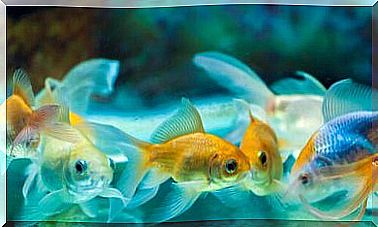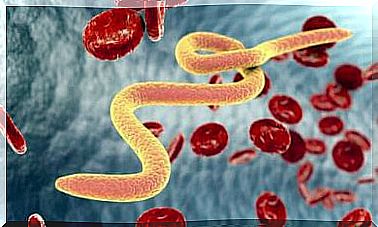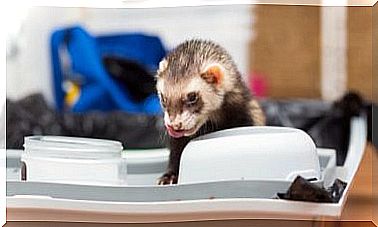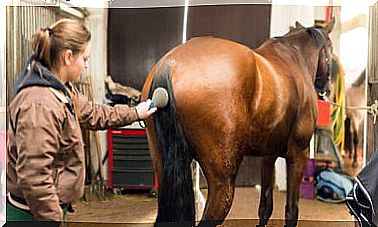Treatment Of Orchitis In Dogs

Many owners are frightened when they notice that their dogs have swollen and red testicles. These unpleasant symptoms usually indicate the progress of an infectious process called orchitis. Next, we’ll explain what orchitis in dogs is and how to treat it to preserve your best friend’s health.
What is orchitis in dogs?
Dogs’ genitals are one of the most sensitive and vulnerable regions of their body, as they can come into contact with dirt and pathogens on a daily basis. As a result, there is an extensive list of diseases and complications that can affect the genital region of dogs.
Orchitis in dogs is a type of infection that usually leads to inflammation of the testicles. For this reason, one of the main symptoms associated with this disease is red, swollen, and inflamed testicles.
However, not all dogs that have inflamed testicles have orchitis. There are many possible causes for testicular inflammation, such as exposure to chemicals. Therefore, it is essential to take your pet to the veterinarian to identify the cause of this abnormality in their genitals.
How do dogs develop orchitis?
In general, the infectious process begins with an injury or burn to the genitals, especially the testicles or scrotum. For example, if a dog is injured during a fight or suffers a frostbite during the winter.

If this lesion comes in contact with certain bacteria, an infectious process can be initiated. In this way, the wound acts as a ‘gateway’ for bacteria to enter the dog’s body. Once inside the body, these agents can expand and reach the sperm ducts.
However, the development of an infectious process generally also depends on the state of each animal’s immune system. If the dog has a strong immune system, it can come into contact with pathogens and not develop a disease.
Orchitis symptoms in dogs
In addition to the red, swollen testicles, dogs suffering from orchitis often experience pain. As a result, they are unlikely to allow this region to be touched or examined and may even prefer to isolate themselves to avoid being touched.
Pain, especially if it is severe, often has a negative impact on the animal’s behavior as well. While this can vary with each individual, many dogs are sadder and some may react aggressively.
In addition, the following symptoms associated with orchitis in dogs can be observed :
- Walk with your hind legs wide apart (to avoid touching or rubbing your swollen testicles).
- Presence of pus in the testicles.
- Lick your genitals frequently, especially your testicles.
- Induration of one or both testicles.
- Slower movements.
- Slow down.
- Lethargy.
- Fever.

Treatment of orchitis in dogs
When you identify any of the symptoms mentioned above or when you notice that your dog has swollen testicles, it is essential to take him to the veterinary center quickly. Only a trained professional will be able to verify the causes of this problem and recommend a specific treatment according to the patient’s needs.
Antibiotics are usually given in the treatment of orchitis to stop the infectious process and eliminate pathogenic bacteria. The veterinarian may also recommend an anti-inflammatory to combat swelling in the testicles and relieve the animal’s discomfort.
During treatment, it will be essential that the puppy has a clean, comfortable and peaceful environment to recover more quickly. The absence of traumatic stress will help to accelerate the effectiveness of the treatment.
How to prevent orchitis in dogs?
First, we must avoid as much as possible that our dogs suffer injuries in such a sensitive region. For example, it is necessary to prevent them from running away and engaging in street fights, or to avoid leaving them exposed to the cold or extreme changes in winter weather.
Also remember that optimal hygiene is essential to prevent the spread of bacteria, fungi, parasites and other pathogens in the home. Therefore, we must not neglect the cleaning and disinfection of the environment and accessories used by our dogs.
Last but not least, it is essential to provide adequate preventive veterinary care to our pets throughout their lives. In addition, preventive visits to the veterinarian must be carried out every six months, and we must always keep vaccinations and deworming up to date.








